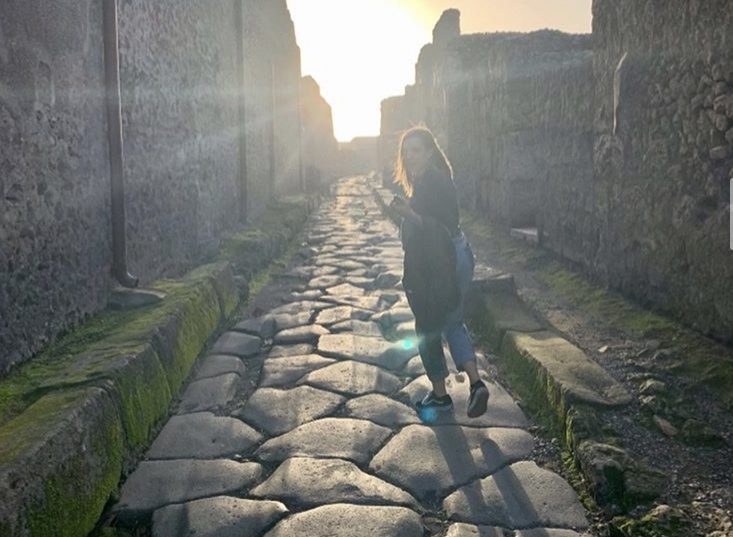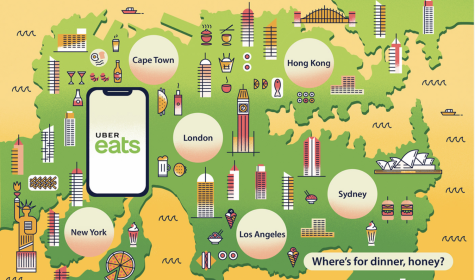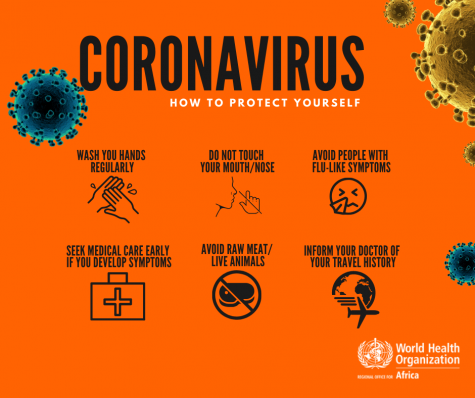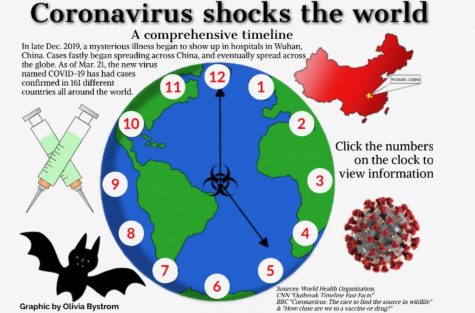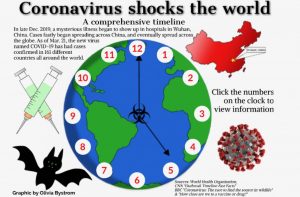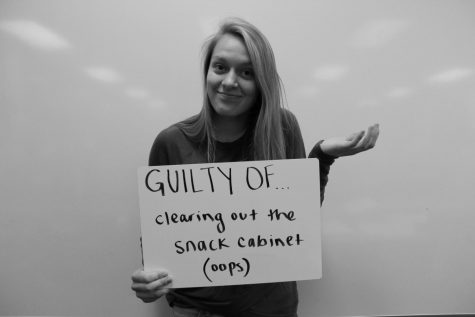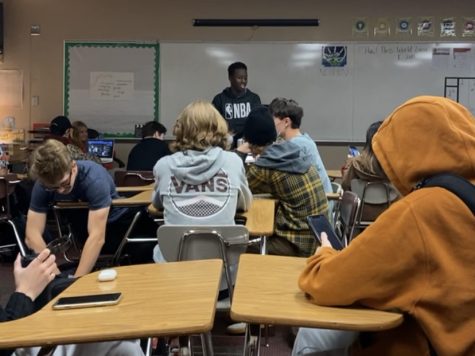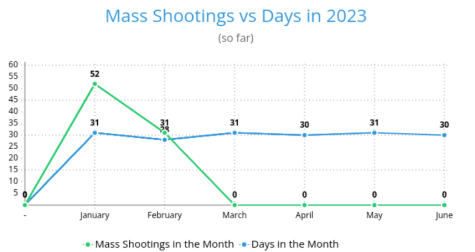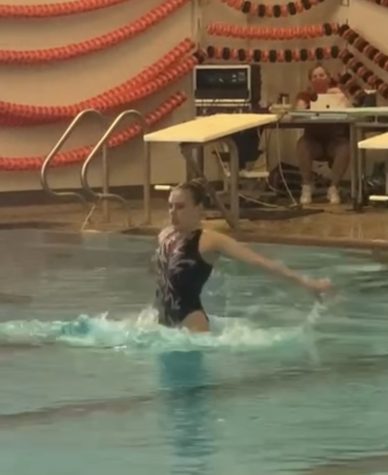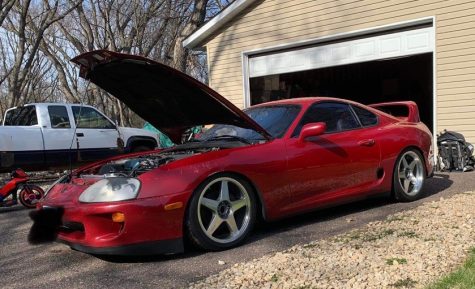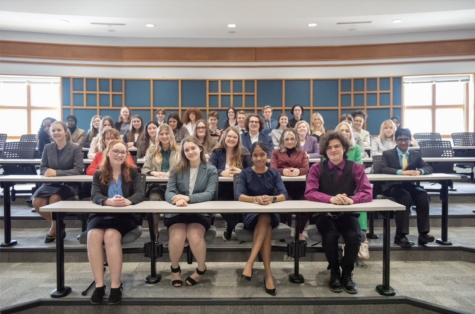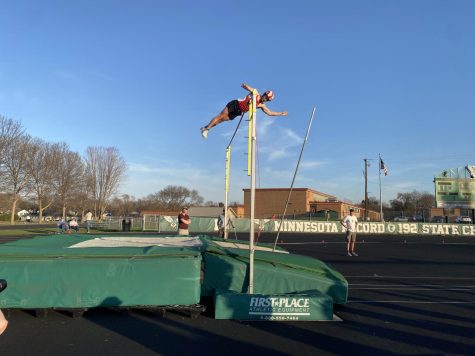Alumni’s time in Italy cut short
Photo submitted by Sintra Nichols
2018 alumnus Sintra Nichols strolls down the streets of Florence, Italy. In late February, Nichols was forced to return home to Minnesota due to the COVID-19 pandemic.
April 6, 2020
“It was like going up on a roller coaster and you’re going up to the highest peak, you’re so excited to see from the top and that fun experience of going down. Then with about 20% left the ride just stops and you have to go back down,” said first year student at Marist University and 2018 Stillwater graduate Sintra Nichols.
A passion for travel is found in many, but a lifestyle of travel is rare. Nichols walks the streets of Florence, Italy one last time before being sent home to Minnesota due to COVID-19. Unfortunately this is the case for many students studying abroad, building relationships just to be taken away and forming connections that have been forcefully broken. It is said that all good things must come to an end, but nobody could have predicted an ending quite like this.
“I found a group of people who I really connected with and I adored all of my roommates. I lived within a five minute walk of all of my best friends, If not in the same building or in the same room. There was positivity wherever I looked and pretty much no matter what I could find somebody to talk to or I could find somebody to hang out with. I got to experience the city with essentially a family, which was incredible,” Nichols explained “I know that I found people who I can turn to for probably the rest of my life because the connection that we all formed was just really really cool and that’s something that I haven’t really seen in my life and I think that is something that only like only something like this can actually produce.”
The morning of Feb. 26 all Marist students studying abroad in Florence got an email informing them there was a choice they could make regarding action to safely continue the remainder of the school year. At this point, only 470 cases of COVID-19 were reported, not knowing that within a month cases would spike to nearly 80,589 in Italy. This email stated that students could either stay on the Florence campus and continue studying at the University, or they could cut their time in Italy short by returning home and continuing their studies remotely.
“[COVID-19] didn’t start out as a super scary thing, it started out like ‘oh no, this thing is happening in China, that must suck,’ and then it started spreading. Then before you know it, people were like ‘should we go to a jazz club tonight?’ Probably half the people would [say yes] and then the other half of the people would [say no],” Nichols said. “I was definitely somewhere in the middle of that spectrum, because part of me was like, ‘What if it turns out to be nothing? Then I will have wasted a week being scared of something that turned out to be nothing,’ but then the other part of me was like, ‘Well maybe not, just in case,’ so it was definitely that weird kind of dichotomy that we were all dealing with.”
There was one case in Florence and then there were a few cases in Florence and then NYU went home and then we had to go home. It just all accelerated so fast.
— Sintra Nichols
Back home in the US, families anxiously awaited the return of their students from one of the most heavily concentrated hotspots for COVID-19.
However, no more than two days later, students woke up to an email which crushed all hope to continue life in Italy. All students were to evacuate the Florence campus as soon as possible. This left a heavy gloom amongst those who needed to be torn away from their school, friends and lives that were built before the pandemic.
“There was one case in Florence and then there were a few cases in Florence and then NYU went home and then we had to go home. It just all accelerated so fast. And with that came zero time to process [the situation], and no one was ready for a single thing that happened. That’s not something that you’re ever told to prepare for,” Nichols explained.
Not only were students thrown off by the short notice of evacuation, but they also had to put time, energy and determination in finding their way back home safely. Some returned home to then quarantine without any sign of COVID-19, but others were led down a different, more severe path.
“My thought was ‘I’m not going to get [COVID-19] but all my friends might, they’re the ones not washing their hands, they’re the ones not listening to themselves, to the news and to doctors,” said senior at Marist University, Florence campus, Kip Gilbert. “Then on my last day of quarantine, or what should have been my last, I started getting a bad cough, and I got a fever. I was kind of thinking about it. I was like ‘you know, this is a little weird,’ I decided to extend my stay in the hotel one more night and wanted to see how I felt the next day. I woke up the next day and I really did not feel good. I had a fever, cough, and body aches.”
Although Gilbert saw a side of the virus that nobody wanted to see, his experience with being infected with COVID-19 and continuing to maintain his encouragement and kindness to others is a true inspiration in the eyes of many. To remain ignorant to the pandemic will only cause more obstacles for society to overcome before any healing can be achieved.
The close encounters or experiences with COVID-19 have taken a physical, mental and emotional toll on the world, but stories being told by those affected reach far beyond the virus itself. It is instead the impact that the virus has made that lingers in the lives of Nichols, Gilbert and many more.
“The key phrase to this whole experience is that this is so much bigger than us,” Gilbert said.


